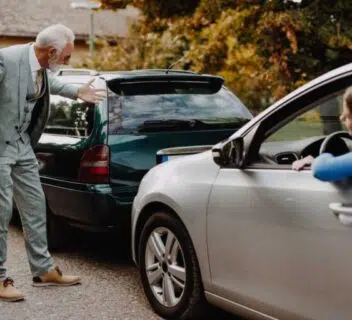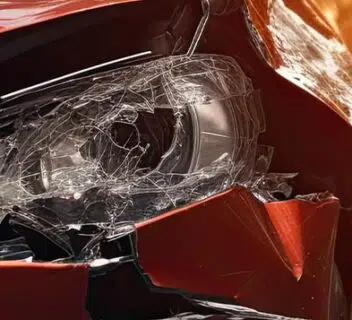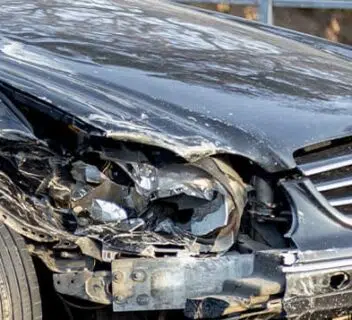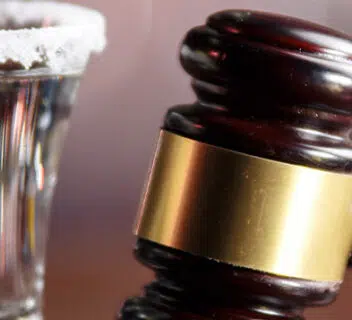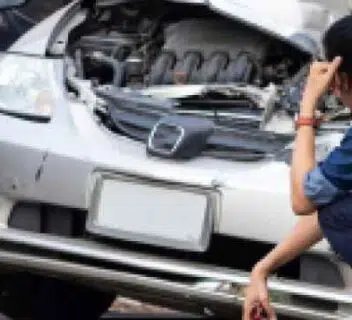If you’ve been injured in a serious motor vehicle accident, then you could be entitled to compensation — whether you are attempting to receive the payout after dealing with insurance claims adjusters, or litigating the claim through the court. Navigating these processes isn’t straightforward, and there are many unique challenges and opportunities that you’re likely to encounter. We encourage you to get in touch with an experienced car accident attorney.
Contact 1-800-THE-LAW2 for a free legal consultation with an attorney in our network. If you decide to move forward with the attorney, they’ll be able to speak on your behalf with the insurance claims adjuster (and anyone else) in order to help you secure compensation.
Of course, if you’d like to learn more about issues and opportunities with insurance claims and your insurance claims adjuster, then keep reading! We’ll cover some of the basics of the insurance claim process — from dealing with the insurance claims adjuster to navigating the claims submission strategically.
Insurance companies and insurance claims adjusters are not your allies.
Popular culture has taught Americans that one of the first and most important things you should do after an accident is talk to your insurance company (through the insurance claims adjuster). In fact, we’re bombarded every day with insurance ads that try to “soften” the public face of insurance, with friendly neighbors and cute cartoon geckos. Don’t be fooled. These are billions of marketing dollars at work, and the result of countless decades of political lobbying, too.
Bet you didn’t know that the insurance lobby is the largest political lobby in the United States, pumping billions straight into the pockets of your elected representatives so that they can continue to overcharge for policies, avoid transparency, and underpay claimants based on the terms of the insurance policy.
Still feel the insurer is your ally? Consider this.
Insurance companies improve their profit margins when they deny “edge case” claims and underpay legitimate claims. As publicly traded corporations, they have a legal duty to maximize their profits for their shareholders. To put it simply: they can and should do everything in their power to avoid paying you out for your claims, so long as they don’t violate your rights.
Unlike insurance company adjusters, public adjusters work directly on behalf of policyholders to assist in filing insurance claims, especially when settlement offers from insurers seem inadequate.
Now, it’s your responsibility to protect yourself. You have to understand and accept that the insurance company’s incentives are completely in opposition to your own — while you want to receive the maximum possible payout, they want to minimize your payout. It makes absolutely zero sense to “work with them” as though they’re your ally.
Instead, your focus should be on working with an attorney who can help you submit your claims and communicate your expectations effectively.
Why you’ll want an attorney to talk to your insurance company after a car accident
To maximize the profits of the insurance company, the job duties of insurance adjusters include speaking to claimants after a car accident in such a way as to obtain as much sensitive information as possible.
To become an insurance adjuster, one must pass a licensing exam, which is a crucial step in obtaining the requisite qualifications.
Unless you’re a lawyer, you might not realize that innocuous questions like “are you okay” could be used to later undermine your damages claims — after all, if you tell the insurance adjuster that you’re “fine” after the accident, even if you only meant to say it offhand in casual parlance, it may be used to argue that you were not actually suffering serious injuries after the car crash.
These innocuous statements — and more — can and will be used against you. The insurance adjuster is waiting to record each and every one of these slip-ups, which they will later use to deny your claim outright or to underpay you.
Avoid these concerns by having your attorney speak to the insurer instead. They’ll be able to communicate effectively without making sensitive disclosures that could otherwise harm your claims.
But what if I have to talk to insurance? What should I avoid saying?
If you absolutely have to talk to the insurance provider, then here are a few things you should avoid disclosing:
- Avoid any admissions of guilt, or apologies for the things that occurred
- Avoid any discussion about whether you were partially at-fault for the accident (i.e., you were distracted, speeding, or perhaps not wearing a seatbelt)
- Avoid any detailed discussions about how the crash occurred
- Do not discuss your medical details after the accident
- Do not discuss any communications that you may have had with attorneys
Claims adjusters work to gather information that can be used to minimize the payout on your claim. But even keeping these aspects in mind, you’re likely to make an inadvertent disclosure that could harm your claims — that’s why it’s so critical that you consult with an experienced personal injury attorney first.
Don’t assume that your claim is weak just because there are complications
Insurance companies have a tendency to convince claimants that their claims are “weak” and poorly supported by the evidence — but now you know that insurers are incentivized to make you feel that way. They actively benefit when they can convince a legitimate claimant to simply give up on pursuing their claims.
Claims related to natural disasters, for example, can be particularly complex but are often valid and worth pursuing.
Car accident claims are not always straightforward. What you may initially perceive to be a faulty claim (i.e., perhaps you weren’t wearing a seatbelt, perhaps you were speeding at the time of the accident, or perhaps there was significant property damage), could still lead to a recovery in litigation, depending on the state law that applies.
Instead of making assumptions about your claims’ value and “worthiness,” we encourage you to speak to a qualified personal injury attorney. They’ll be able to evaluate your claim more precisely, and identify potential avenues for recovery and legal argument that sidestep some of the issues.
Hiring a car accident attorney doesn’t have to cost you anything out-of-pocket
Many people mistakenly believe that hiring a personal injury lawyer (which includes car accident lawyers) is a costly endeavor that is only available to the wealthy. Similar to the misconception that only full-time employees receive health insurance benefits, this is a common misperception.
In reality, most personal injury lawyers work on a contingency fee basis, so they don’t cost anything upfront or out-of-pocket. Instead, they offer legal representation in exchange for a percentage cut of whatever compensation they’re able to secure on the client’s behalf (this percentage cut can range from 25 percent to 40 percent or more, depending on the negotiated fees).
The car accident lawyer only gets paid if they “win” your compensation. If they don’t win, you don’t have to pay. This takes an enormous financial burden off of the client. You either walk away with a payout, or you walk away without having to pay any attorney fees — this substantially reduces the risk of litigating your personal injury claims.
Best of all, contingency fee arrangements align the incentives of the attorney with the client. They are incentivized to work efficiently to maximize compensation. After all, the more you get paid, the more they get paid!
Contact 1-800-THE-LAW2 for a Free Legal Consultation
If you’ve been injured in a car accident (or any other type of motor vehicle accident), then you could be entitled to compensation under the law. As you explore the possibility of a lawsuit, you may be feeling somewhat overwhelmed or confused — that’s totally normal! The legal process can be quite complicated, and there are many nuances and issues that can impact your dispute. As such, it’s important that you connect with an experienced car accident attorney who can help you understand how best to proceed.
Contact 1-800-THE-LAW2 for a free consultation with a qualified local car accident lawyer in our network. Our network of attorneys includes highly qualified professionals, many of whom have advanced degrees and certifications beyond the basic requirement of a high school diploma. During this initial consultation, you’ll have the opportunity to discuss the details of your case and learn more about your strategic options.
We look forward to assisting you.

